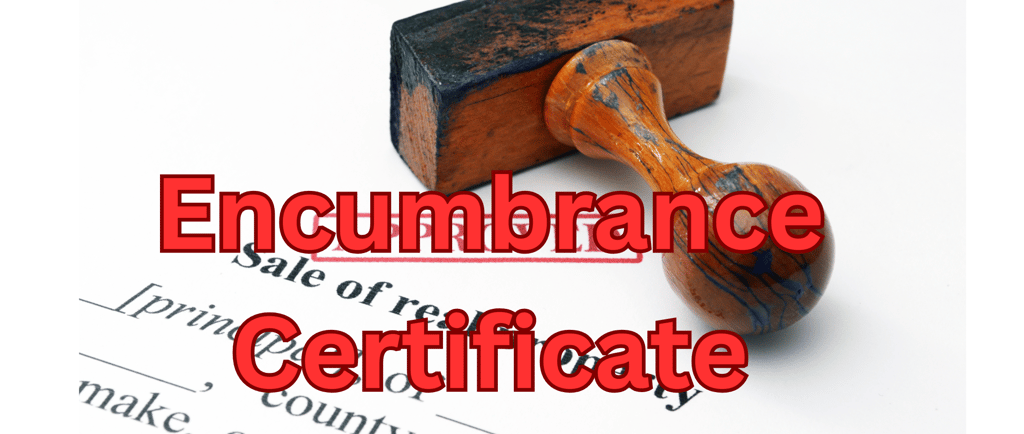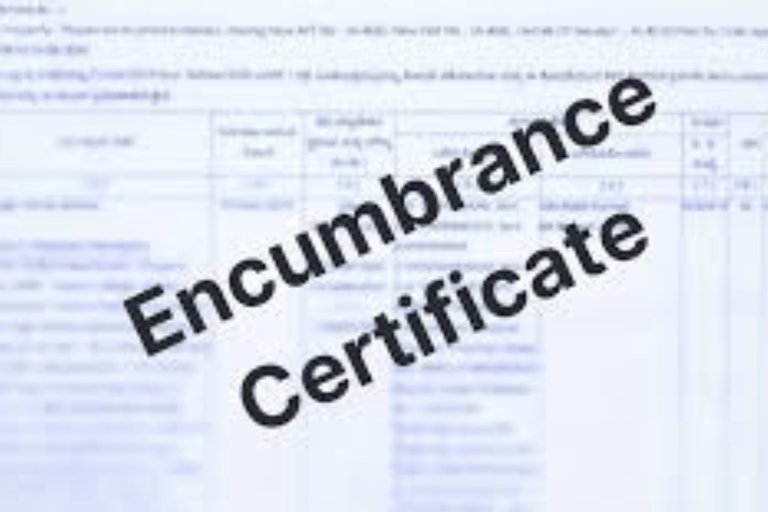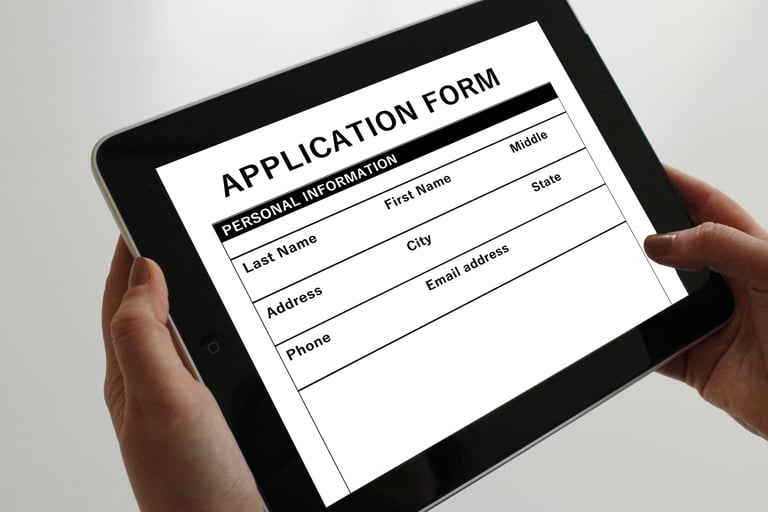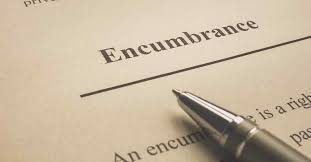Encumbrance Certificate (EC)
When buying property in India, it is crucial to verify its legal and financial status. One of the most important documents in this process is the Encumbrance Certificate (EC). Many homebuyers, especially first-timers, may not fully understand what an EC is, why it is important, and how to obtain it. This article provides a complete beginner-friendly guide on Encumbrance Certificates in India
7/18/20254 min read


Encumbrance Certificate (EC)
When buying property in India, it is crucial to verify its legal and financial status. One of the most important documents in this process is the Encumbrance Certificate (EC). Many homebuyers, especially first-timers, may not fully understand what an EC is, why it is important, and how to obtain it. This article provides a complete beginner-friendly guide on Encumbrance Certificates in India.
What Is an Encumbrance Certificate (EC)?
An Encumbrance Certificate is a formal document issued by the Sub-Registrar of Assurances, which is the authority overseeing the property in question. This certificate verifies whether the property is devoid of any financial or legal obligations, including:
Loans or mortgages associated with the property
Outstanding dues or liabilities
Legal conflicts or claims
In simpler terms, an Encumbrance Certificate guarantees that the property you plan to purchase is free from any encumbrances or claims and possesses a clear title.
Why Is an Encumbrance Certificate Important?
Here are several significant reasons why acquiring an Encumbrance Certificate is essential for property purchasers:
Proof of Clear Title:
It serves as proof that the property is free from any legal or financial obligations.
Loan Requirement:
Financial institutions and banks necessitate an EC prior to sanctioning home loans.
Avoiding Fraud:
It aids in preventing the inadvertent purchase of disputed or mortgaged properties.
Legal Assurance:
The EC guarantees that no third party can assert rights over the property following your acquisition.
Information Included in an Encumbrance Certificate
An EC typically comprises the following information:
Name of the property owner
Property description: location, area, survey number
Details of registered transactions (such as sale deeds, mortgage deeds)
Duration for which the certificate is valid
Any liabilities, if applicable
Type of encumbrance (loan, lease, legal case)
Categories of Encumbrance Certificates
There are two categories of EC that purchasers should be aware of:
Form 15 (Encumbrance Certificate):
This form displays all transactions associated with the property for the specified duration. It encompasses details of mortgages, sales, leases, and other encumbrances.
Form 16 (Nil Encumbrance Certificate):
If no transactions or encumbrances are identified for the specified duration, Form 16 is issued. This is commonly referred to as a “Nil Encumbrance Certificate.”
Procedure to Apply for an Encumbrance Certificate
You can apply for an EC through both offline and online methods, depending on the facilities available in your state.
Offline Procedure:
Visit the local Sub-Registrar's office.
Complete Form 22 (Application for EC).
Provide information such as property address, ownership details, transaction duration, etc.
Attach necessary documents like property details and identification proof.
Pay the required fee.
Obtain the acknowledgment slip.
The EC is generally issued within 15–30 days.
Online Procedure:
Numerous state governments offer EC services via their property registration websites.
For instance:
Andhra Pradesh: https://registration.ap.gov.in/
Telangana: https://registration.telangana.gov.in/
Karnataka: https://kaverionline.karnataka.gov.in/
Steps:
Visit the respective website.
Search for the ‘Encumbrance Certificate’ service.
Input property details and the required duration.
Pay the fee online.
Download or receive the EC via email.
Documents Required for EC Application
Property details: survey number, address, area details
Sale deed or ownership proof
ID proof of the applicant (Aadhaar, PAN, etc.)
Application form (online/offline)
Fee payment receipt
EC Fees and Charges
The fee for an Encumbrance Certificate varies from state to state and depends on:
The number of years for which you want the certificate.
Whether it is an online or offline application.
As a general idea:
For 1 year: ₹200–₹500
For 10–15 years: ₹500–₹2,000
It is advisable to check with your local Sub-Registrar’s office or state portal for exact charges.
How Long Is an Encumbrance Certificate Valid?
An EC is valid for the specific period it is applied for. For example:
If you apply for an EC for 20 years, it will only show encumbrances during those 20 years.
If you want an updated EC, you must apply again.
Generally, banks request an EC covering the last 12–30 years when processing a home loan.
Difference Between Encumbrance Certificate and Other Property Documents
Document Name Purpose
Encumbrance Certificate Confirms property is free from liabilities
Sale Deed Proof of ownership transfer from seller to buyer
Khata Certificate For property tax and municipal records
Title Deed Legal ownership document
Common Misunderstandings About Encumbrance Certificate
EC Shows All Legal Disputes:
False. EC only shows registered transactions. It does not record pending legal cases unless a court order has been registered with the Sub-Registrar.
EC Is a One-Time Requirement:
False. For property transactions or home loans, banks or buyers may ask for an EC updated up to the latest date.
False. You must apply for an updated EC whenever required. It is not automatically updated in the system.
How to Verify the Authenticity of an EC
Check the official stamp and signature from the Sub-Registrar office.
Verify online if the respective state portal allows EC verification.
Cross-check the EC details with the sale deed and property tax documents.
Conclusion
An Encumbrance Certificate is an essential safeguard for property buyers in India. Whether you are buying land, a flat, or a house, ensuring that the property is free from encumbrances is non-negotiable.
For a hassle-free property transaction:
Always apply for and review the EC.
Check it carefully for any encumbrances or legal liabilities.
If in doubt, consult a property lawyer or real estate expert.
In the digital age, obtaining an EC has become much easier, especially in states with online services. Make it a priority step in your property buying process to ensure your investment is legally secure and risk-free.
for more info on real estate investment or knowledge please visit our website flixahdeveloperspvtltd.com you can also call us @ +91 9100600730










